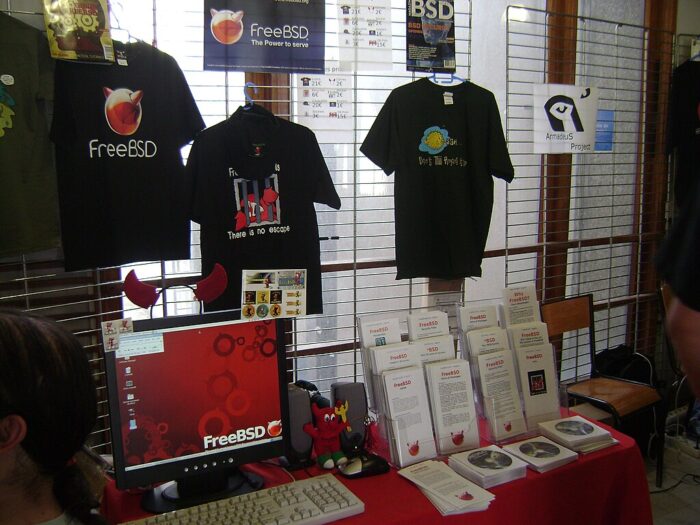The FreeBSD Foundation will organize and manage the projects that STF is funding, which mainly focuses on security.

August is turning out to be quite a good month for the folks at the FreeBSD Foundation, the folks behind the eponymous BSD operating system.
Only a week ago we learned from Phoronix’s Michael Larabel that the foundation was working with chipmaker AMD to develop a FreeBSD AMD IOMMU driver which will help the open source Unix-like operating system better support more than 256+ CPU cores. Then on Monday we learned that Germany’s Sovereign Tech Fund has agreed to invest €686,400 (about $766,341 US) in the FreeBSD project to drive improvements in infrastructure, security, regulatory compliance, and developer experience.
The Sovereign Tech Fund is a German government program that supports the development, improvement, and maintenance of open digital infrastructure in the public interest. Its stated purpose is to strengthen the sustainability of the open source ecosystem, with a focus on security, resilience, and technological diversity.
“As it has for thirty years, the FreeBSD project is again positioning itself at the vanguard of open source security, resilience, and reliability,” FreeBSD Foundation’s executive director Deb Goodkin said in a statement. “The world’s governments recognize the key role open source projects like FreeBSD play in our shared digital infrastructure. This STF-commissioned work will provide the necessary visibility, auditability, and trust for commercial FreeBSD users facing new regulations as well as public sector, academic, and individual users.”
In Monday’s press release, the foundation said that it will organize and manage all of the projects being funded by STF, and that work on the projects will begin before the end of this month and continue through 2025. In a bit of syncronicity, the projects being funded fall in line with a summary report released earlier this month by the U.S. Office of the National Cyber Director on what the Biden administration sees as key priorities for securing the open source software ecosystem.
The Office of the National Cyber Director is the federal agency that was formed in 2021 in the aftermath of the SolarWinds breach, which was an attack on the software supply chain. Its purpose is to advise the U.S. executive branch on matters of cybersecurity. The breach also lead the Linux Foundation to create Open Source Security Foundation, or OpenSSF, a cross-industry forum for collaborative improvement of open source software security.
How the Money Will Be Spent
The work that STF is funding focuses on five key projects:
- Zero Trust Builds: Enhance tooling and processes
- CI/CD Automation: Streamline software delivery and operations
- Reduce Technical Debt: Implement tools and processes to keep technical debt low
- Security Controls: Modernize and extend security artifacts, including the FreeBSD Ports and Package Collection, to assist with regulatory compliance
- Software Bill of Materials Improvements: Enhance and implement new tooling and processes for FreeBSD SBOM
“By enhancing security controls and SBOM tooling, the FreeBSD Foundation is helping to keep FreeBSD at the forefront of improved vulnerability disclosure mechanisms and secure software foundations,” the foundation said in a statement.
Earlier this month, STF announced a new funding program, Fellowship for Maintainers, to assure that maintainers of important open source projects receive adequate financial compensation for their work. This comes as a response to recent studies that have indicated that leading developers with many open source projects are both overworked and under compensated, which has been identified as a potential security risk in open source software. It appears that at least part of the funds that have been earmarked for FreeBSD will come from this fund.
“This investment in critical digital infrastructure will accelerate modernization of FreeBSD, enhance security hygiene, and improve developer experiences,” Fiona Krakenbürger, co-founder of STF, said in a statement. “The widespread prevalence of FreeBSD means that these improvements will have a far-reaching impact on the global public sector and the research sector, as well as commercial users. We are excited to contribute to its continued modernization in a way that best serves the public interest as well as the FreeBSD community.”
Christine Hall has been a journalist since 1971. In 2001, she began writing a weekly consumer computer column and started covering Linux and FOSS in 2002 after making the switch to GNU/Linux. Follow her on Twitter: @BrideOfLinux








